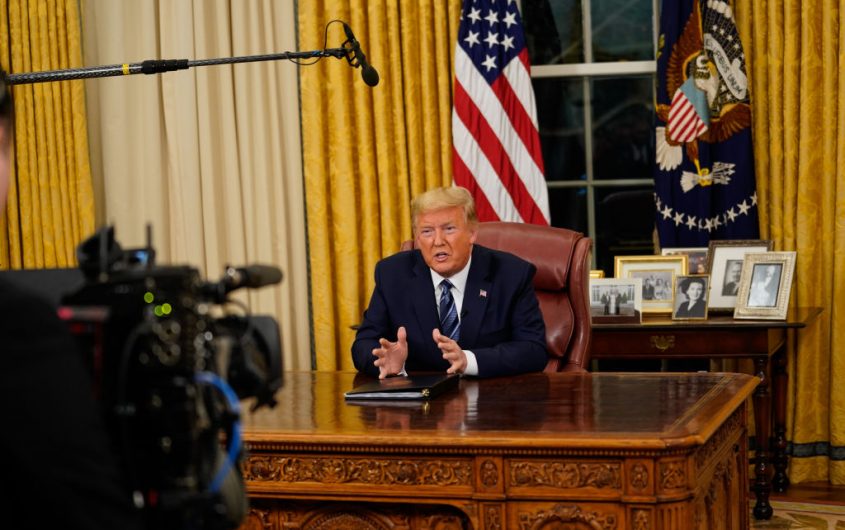
Traveling in the Wrong Direction with the EU

Peter S. Rashish
Vice President; Director, Geoeconomics Program
Peter S. Rashish, who counts over 30 years of experience counseling corporations, think tanks, foundations, and international organizations on transatlantic trade and economic strategy, is Vice President and Director of the Geoeconomics Program at AICGS. He also writes The Wider Atlantic blog.
Mr. Rashish has served as Vice President for Europe and Eurasia at the U.S. Chamber of Commerce, where he spearheaded the Chamber’s advocacy ahead of the launch of the Transatlantic Trade and Investment Partnership. Previously, Mr. Rashish was a Senior Advisor for Europe at McLarty Associates, Executive Vice President of the European Institute, and a staff member and consultant at the International Energy Agency, the World Bank, UNCTAD, the Atlantic Council, the Bertelsmann Foundation, and the German Marshall Fund.
Mr. Rashish has testified before the House Financial Services Subcommittee on International Monetary Policy and Trade and the House Foreign Affairs Subcommittee on Europe and Eurasia and has advised three U.S. presidential campaigns. He has been a featured speaker at the Munich Security Conference, the Aspen Ideas Festival, and the Salzburg Global Seminar and is a member of the Board of Directors of the Jean Monnet Institute in Paris and a Senior Advisor to the European Policy Centre in Brussels. His commentaries have been published in The New York Times, the Financial Times, The Wall Street Journal, Foreign Policy, and The National Interest, and he has appeared on PBS, CNBC, CNN, NPR, and the BBC.
He earned a BA from Harvard College and an MPhil in international relations from Oxford University. He speaks French, German, Italian, and Spanish.
The French have an expression that comes to mind when considering President Trump’s decision yesterday to combat the coronavirus by suspending entry into the United States for citizens of the 26 countries of the European Union’s border-free Schengen Area: il n’y a que le provisoire qui dure, or “only the temporary endures.”
Because shortly after the president delivered his brief Oval Office address announcing that the new restrictions would be in effect for thirty days (so temporary), the White House issued a proclamation that makes clear this measure “shall remain in effect until terminated by the President” (so it will endure).
More on the Coronavirus
The duration of the measure wasn’t the only aspect of the president’s address that could be filed under “don’t do as I say, do as I write.” In his speech Trump announced that “these prohibitions will not only apply to the tremendous amount of trade and cargo, but various other things as we get approval. Anything coming from Europe to the United States is what we are discussing.”
Yet the subsequent White House proclamation makes clear that the exchange of goods will not be affected: “The free flow of commerce between the United States and the Schengen Area countries remains an economic priority for the United States, and I remain committed to facilitating trade between our nations.”
A travel ban is clearly insufficient to deal with the spread of the coronavirus in the U.S.
A travel ban is clearly insufficient to deal with the spread of the coronavirus in the U.S. Stepped up testing (unmentioned by the president in either the speech or the proclamation) to determine the real number of cases already present in the U.S is also essential.
Even if it is not an entirely unreasonable measure (Israel has instituted something similar), preventing EU citizens from entering the country has an unattractive “blame the foreigners” quality and is arbitrary on its face: why are UK nationals exempt when there are 459 cases there (15th worldwide)? And the president was right the first time: the ban should be limited to thirty days to allow for an initial assessment of its effectiveness.
There is also no little irony to Trump’s travel ban given his propensity to resort to the bilateral trade balance as a kind of scorecard for U.S.-EU economic relations.
The president complains about the U.S. deficit in goods trade with the EU but leaves unsaid that the U.S. has a surplus in services trade with the EU. If U.S. company profits from investments are included, then the U.S. runs a small overall current account surplus (the broadest measure of trade) with the EU.
By preventing Europeans from coming to the United States, the administration is cutting into an important contributor to the U.S. surplus in services exports.
Travel and tourism accounted for 11 percent of U.S. exports and 32 percent of U.S. services exports in 2017. By preventing Europeans from coming to the United States, the administration is cutting into an important contributor to the U.S. surplus in services exports. In 2018, out of a total 79.62 million international visitors to the United States, more than 14 million, or almost 20 percent, came from Europe.
Using the president’s own (misguided) metric of the trade balance, his travel ban will only create greater dissatisfaction in the White House. But in this instance, he won’t be able to point to alleged unfair trading practices in the EU; instead, he will only have himself to blame.









